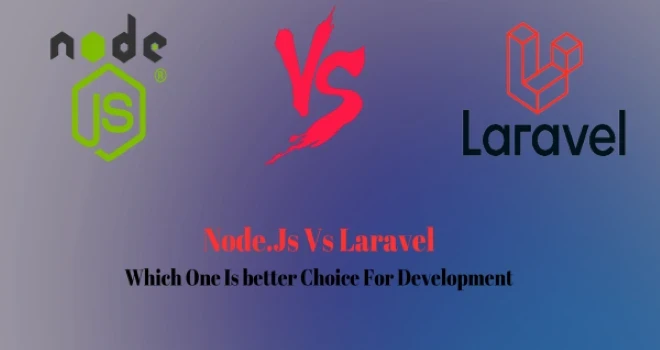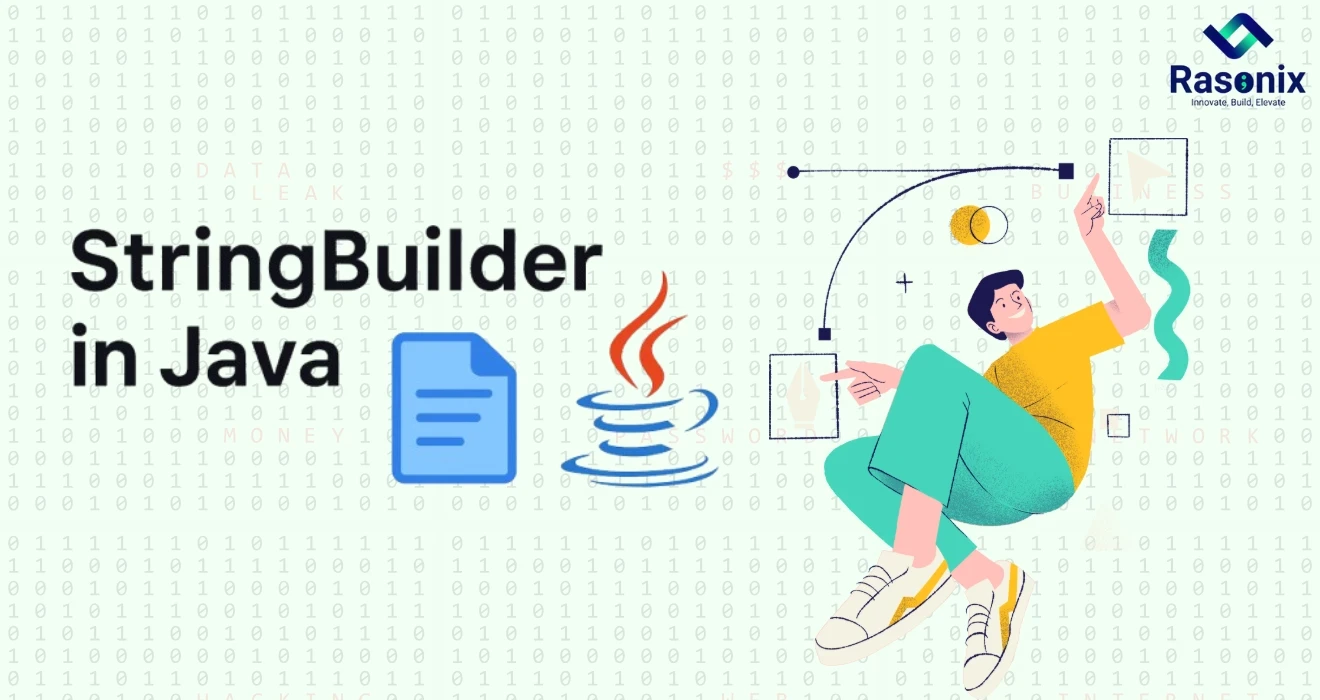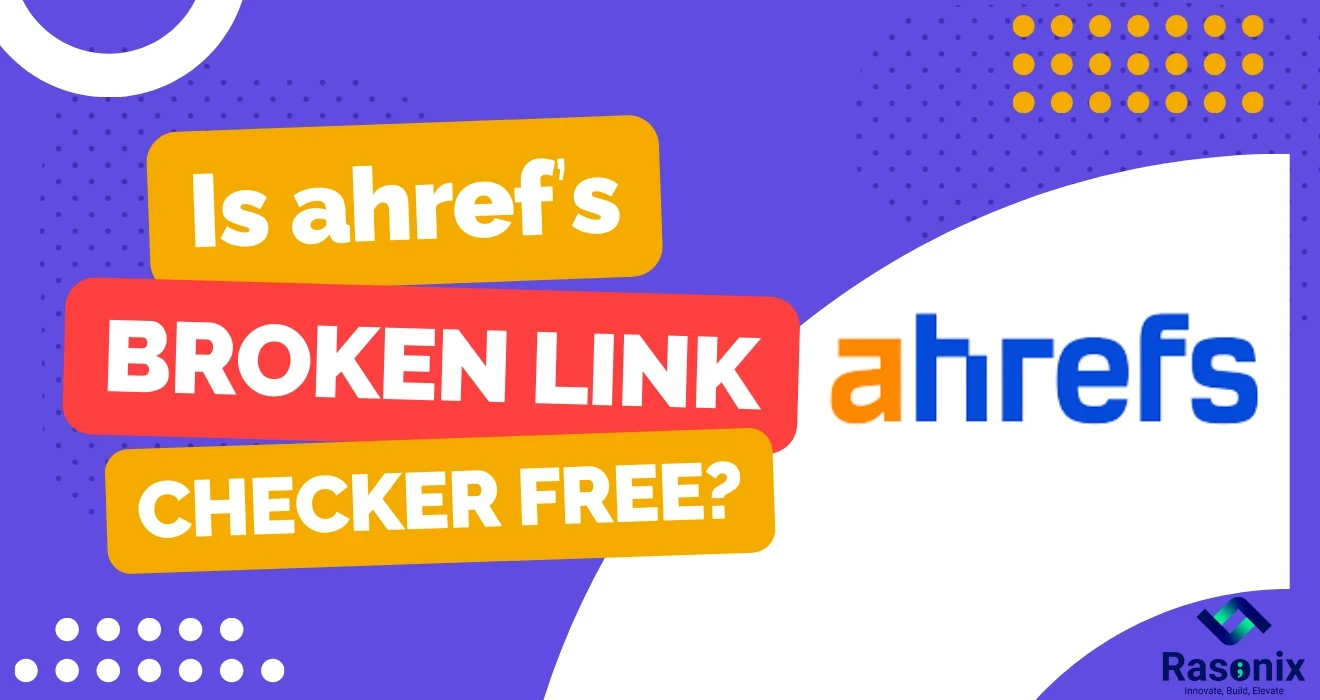Introduction
In the dynamic world of web development, the choice of technology can significantly impact the outcome of your projects. Laravel and Node.js are two prominent contenders that offer distinct approaches to building web applications. This blog post is a comprehensive comparison between Laravel, a PHP framework, and Node.js, a JavaScript runtime, to help you make an informed decision based on your project requirements, team expertise, and performance goals.
What is Laravel
Laravel is an open-source PHP web application framework used for building web applications and websites. It provides developers with a structured and elegant way to create robust, scalable, and maintainable web applications. Laravel follows the Model-View-Controller (MVC) architectural pattern, which helps in separating the various components of an application's logic and presentation.
Laravel's focus on developer productivity, expressive syntax, and modern PHP practices has made it a popular choice for building web applications of varying complexity, from simple websites to complex enterprise-level systems. It has played a significant role in shaping the PHP ecosystem and has garnered a strong following in the web development community.
Features of Laravel
- Eloquent ORM: Laravel provides a powerful Object Relational Mapper called Eloquent for seamless database interactions.
- Database Migrations: It offers built-in mechanisms for creating and managing database migrations, which results in making it easier to modify database structure.
- Blade Templating Engine: Laravel utilises the Blade templating engine, which simplifies the process of designing and rendering views.
- Authentication and Authorization: Laravel provides a straightforward way to implement authentication and authorization in web applications.
- Caching: It offers a caching system that helps improve application performance by storing frequently accessed data.We can access the data frequently without making any call to the database directly.
- Routing: Laravel’s routing system allows developers to define clean and easily maintainable routes for their web applications.
What is Node.Js
Node.js is an open-source, server-side JavaScript runtime environment built on Chrome’s V8 JavaScript engine. It allows developers to run JavaScript code outside of a web browser, making it possible to use JavaScript for server-side scripting and backend development.
Node.js provides an event-driven, non-blocking I/O (input/output) model, which allows it to handle a large number of concurrent connections efficiently. This makes it well-suited for building scalable and high-performance network applications.
Features of Node.js
- Asynchronous and event-driven: Node.js leverages non-blocking APIs and event mechanisms for efficient and smooth processing of applications.
- Full-stack development: With Node.js, you can develop both the front and back end applications using JavaScript.
- Single-threaded scalability: Node.js’ event loop architecture allows for high scalability and handling of more requests.
- Fast data streaming: Node.js supports lightweight and native streaming, enabling direct transmission of data.
- Node Package Manager (npm): npm is a robust package manager that simplifies the installation and management of application packages.
- calability: Node.js’ asynchronous nature allows it to handle multiple requests concurrently, making it highly scalable.
What Makes Difference
Laravel and Node.js are two distinct technologies that serve different purposes in web development. The choice between Laravel (a PHP framework) and Node.js (a JavaScript runtime) depends on various factors, including the nature of your project, your team's expertise, and your performance requirements. Let's explore the key differences that set Laravel and Node.js apart.
Ecosystem and Libraries:
- Laravel: Laravel has a mature ecosystem with a wide range of packages and libraries for various functionalities. Its ecosystem is highly suitable for web applications and content management systems.
- Node.js: Node.js boasts an extensive npm (Node Package Manager) ecosystem with numerous packages for various use cases, including web servers, APIs, real-time applications, and more.
Asynchronous Programming:
- Laravel: PHP traditionally uses a synchronous model for handling requests. While Laravel does support asynchronous programming to some extent, it's not as deeply ingrained as in Node.js.
- Node.js: Node.js is known for its non-blocking, asynchronous architecture, which makes it highly efficient for handling concurrent connections, real-time applications, and data-intensive tasks.
Real-Time Applications:
- Laravel: Laravel can handle real-time features using technologies like WebSockets, but it might require additional libraries or integrations.
- Node.js: Node.js is well-suited for building real-time applications like chat applications, online gaming, and collaborative tools due to its event-driven architecture.
Performance:
- Laravel: PHP-based applications, including Laravel, generally have good performance. However, the performance might not be as optimised for extremely high concurrency scenarios.
- Node.js: Node.js excels in scenarios where high concurrency and real-time responsiveness are crucial, thanks to its non-blocking, asynchronous nature.
Make a correct selection between Laravel vs. Node.Js?
Choosing between Laravel and Node.js requires careful consideration of various factors to ensure the correct selection for your project. Here's a step-by-step approach to help you make an informed decision:
1. Project Requirements Analysis:
Start by clearly defining your project's goals, scope, and requirements. Understand the specific features, functionalities, and performance expectations you need.
2. Real-Time vs. Traditional Application:
Determine whether your project requires real-time features, such as live updates, chat functionality, or real-time collaboration. If real-time interaction is a primary concern, Node.js might be more suitable.
3. Team Expertise:
Evaluate your team's familiarity with both PHP and JavaScript. If your team is more proficient in one language over the other, it might influence your choice.
4. Development Speed:
Consider the development speed you're aiming for. Laravel's structure and developer-friendly features might lead to quicker development for certain types of applications.
5. Performance Considerations:
Assess your project's performance requirements. Node.js's asynchronous nature and event-driven architecture can be advantageous for high-concurrency scenarios, while Laravel's performance is generally good for traditional web applications.
6.Framework Ecosystem
Explore the ecosystems of Laravel and Node.js. Laravel has a rich ecosystem of packages and tools for web development, while Node.js's npm repository offers a wide range of modules for various use cases.
We have a dedicated blog for Laravel Development where you can uncover the potential of Laravel and why it can be your go-to solution for exceptional web development.


















 Subscribe Now
Subscribe Now